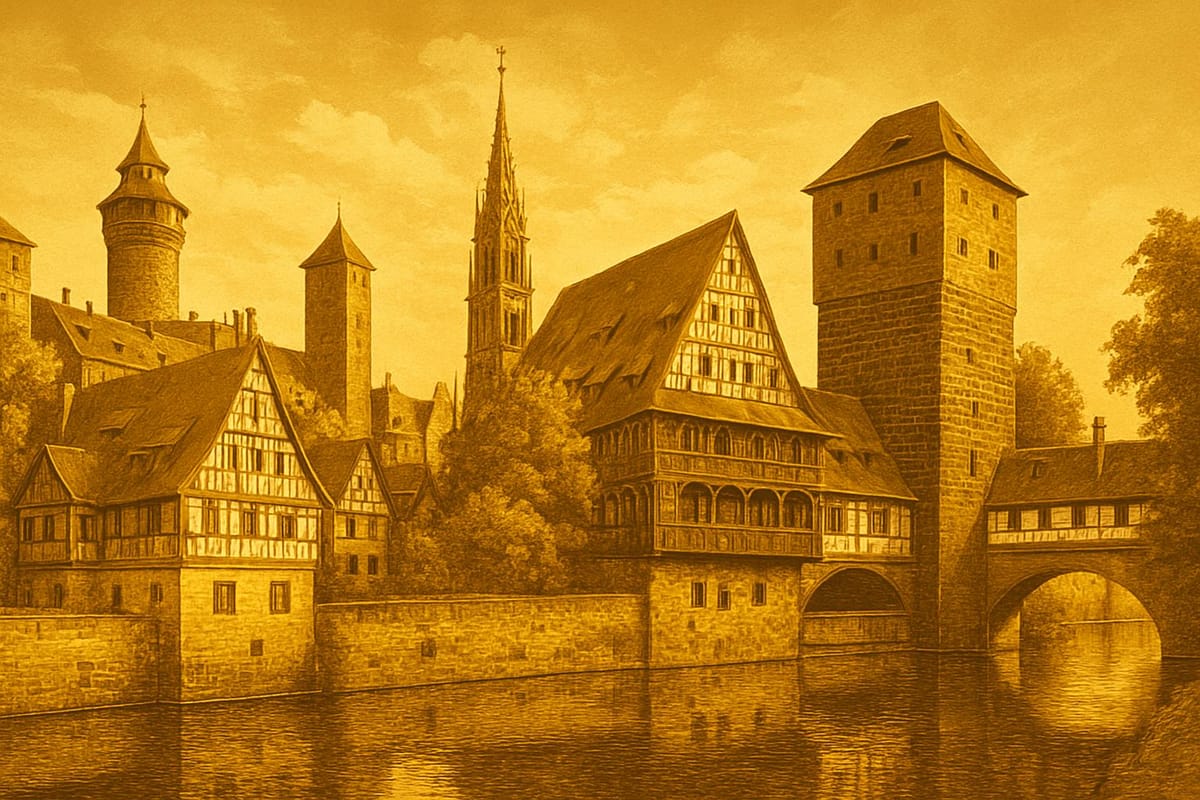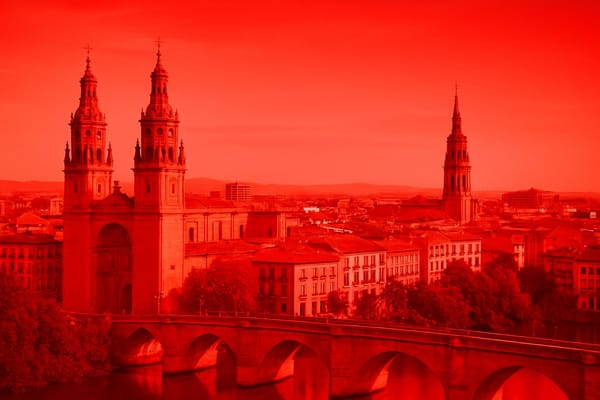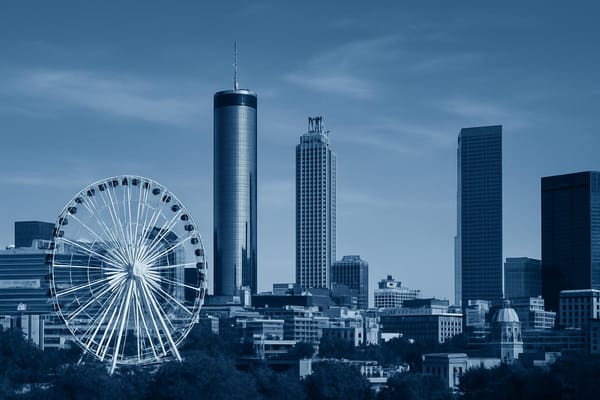Nuremberg
Discover a medieval castle, charming old town, famed Christmas market and savory bratwurst delights.

Important things to know about Nuremberg
Nuremberg, known in German as Nürnberg, is a dynamic German city in Bavaria that blends a deep-rooted history with a modern, forward-looking urban identity; as the second-largest city in Franconia, it has evolved from traditional manufacturing and trades into a diversified economy anchored by electrical engineering, mechanical industries, information technology and a growing startup scene, while its role as a regional transport hub and junction for rail and road networks keeps businesses well connected across Germany and Europe. The city’s social fabric reflects both its Franconian cultural heritage and contemporary multiculturalism, visible in culinary traditions like hearty local dishes and vibrant markets, in active arts and creative industries, and in civic life animated by universities and research institutions that feed talent into local companies and innovation clusters. Urban planning here balances preservation of historic quarters with regenerated industrial zones and new residential developments, creating mixed neighborhoods where students, professionals and families coexist, supported by public services, parks and a compact city center that encourages cycling and public transit use. Nuremberg’s economy benefits from a strong SME sector, family-owned enterprises and international firms, all contributing to employment and export activity, while municipal initiatives emphasize sustainability, digital transformation and cultural programming that enrich community life. Whether considered as a business location, a place to study or a residential city in southern Germany, Nuremberg offers an appealing combination of economic resilience, educational resources, and a distinctive regional character rooted in Franconian traditions.
Sightseeing hot-spots in Nuremberg
Nuremberg is a city that blends medieval charm with vibrant cultural life, and for travelers seeking memorable sightseeing in Nuremberg, Germany the walled Altstadt and its hilltop Nuremberg Castle are unmissable. Strolling along cobblestone streets, visitors encounter timber-framed houses and bustling squares that capture the essence of historic Nürnberg. The castle complex offers panoramic views over the city and informative exhibits that explain the region's role in medieval and imperial history, making it a cornerstone of Nuremberg attractions and a favorite for photographers and history lovers alike.
Beyond the ramparts, the city’s museums and churches make for rich cultural exploration. The Albrecht Dürer House presents the life and work of one of Germany’s most famous artists, while the Germanisches Nationalmuseum houses an extensive collection of European art and cultural artifacts, cementing Nuremberg’s reputation as a major museum destination. Gothic splendor greets visitors at St. Lorenz Church, and the Toy Museum delights families with its nostalgic displays. Wandering down to the Pegnitz River and through the quaint Handwerkerhof, you’ll find artisan workshops and cozy cafes, showcasing the local crafts and cuisine that round out a full day of sightseeing in Nuremberg.
Seasonal events elevate the city’s appeal, especially the world-famous Christkindlesmarkt, which transforms Nuremberg into a festive wonderland each winter and anchors the calendar of must-see Nuremberg Christmas market experiences. Throughout the year, guided walking tours, culinary tastings featuring Nuremberg sausages, and panoramic viewpoints encourage visitors to linger and explore neighborhoods beyond the tourist core. Whether you’re planning a weekend getaway or an extended cultural itinerary, Nuremberg’s blend of medieval architecture, museums, and lively markets ensures a rewarding and SEO-friendly search for top Nuremberg sightseeing highlights.
Hotels to enjoy in Nuremberg
Nuremberg offers a rich selection of hotels in Nuremberg that suit every type of traveler, from budget explorers to discerning guests seeking luxury. Nestled between the medieval streets of the Old Town and the modern bustle of the city center, many Nuremberg hotels put you within walking distance of the Nürnberg Castle, historic museums, and a lively dining scene. Whether you search for boutique charm near the Albrecht Dürer House or convenient stays close to Hauptbahnhof, accommodation in Nuremberg blends traditional Franconian character with contemporary comforts. Travelers visiting for trade shows at NürnbergMesse will find a strong range of business-oriented properties offering meeting spaces and easy transport links, while families can choose larger rooms and family-friendly amenities in quieter neighborhoods.
Choosing the right place to stay in Nürnberg can enhance your itinerary: many properties emphasize hearty breakfast buffets, free Wi‑Fi, and on-site wellness facilities like saunas after a day exploring the Documentation Center or the festive Christmas market. The city’s compact layout and reliable tram and regional rail connections make it simple to commute from most hotels to cultural highlights, shopping streets, and parks across Franconia. For the best rates and availability, it’s wise to book early during peak seasons such as the holiday fairs and summer festivals, while off-peak visitors often discover attractive deals and quieter streets. With options ranging from charming guesthouses to modern business hotels, Nuremberg’s accommodations deliver practical comfort and a genuine taste of German hospitality.
Restaurants to try in Nuremberg
Nuremberg’s dining scene is a delightful mix of historic charm and modern culinary creativity, offering everything from cozy taverns in the Old Town to contemporary bistros near the castle. Visitors searching for Nürnberg restaurants will find a strong focus on Franconian specialties and hearty Bavarian fare, with the famous Nürnberger Rostbratwurst and rich potato dishes appearing alongside seasonal game and river-fresh fish. Beyond traditional fare, the city embraces international flavors and a growing craft beer culture, so foodies can move from a centuries-old cellar serving regional wine to a trendy spot offering global small plates. The proximity of cultural attractions like the Imperial Castle and the Christmas Christkindlesmarkt means many restaurants blend historic ambiance with menus that celebrate local produce, making Nuremberg a top pick for travelers looking for authenticity and variety.
For those compiling a restaurant guide or searching for the best restaurants in Nuremberg, it pays to explore both the tourist-friendly avenues and the quieter neighborhoods where chefs focus on seasonal ingredients and inventive presentations. Reservations are often recommended-especially for dinner and weekend service-so reserve in advance when aiming for popular tables or tasting menus. Whether you prefer a family-run Wirtshaus with traditional stews and dumplings, a refined dining room serving modern German cuisine, or casual street-food vendors offering quick bites, Nuremberg delivers a satisfying range of places to eat that highlight the city’s culinary identity. Food lovers will appreciate the balance of classic recipes and contemporary techniques that make dining in Nuremberg both comforting and exciting.
Best shopping stops in Nuremberg
Nuremberg offers an unforgettable shopping experience where medieval charm meets modern boutiques. Wandering the winding streets of the Old Town, shoppers discover everything from handcrafted Nürnberger Lebkuchen and traditional toys to contemporary fashion and design pieces. The atmospheric Handwerkerhof near the castle is a highlight for visitors seeking authentic crafts, handmade leather goods, pottery and pewter - perfect souvenirs that reflect the city's artisan heritage. For seasonal shoppers, the world-famous Christkindlesmarkt transforms the Hauptmarkt into a festive marketplace filled with stalls selling gingerbread, ornaments and local specialties, making shopping in Nuremberg as much about atmosphere as about items purchased.
Beyond the markets, Nuremberg shopping spans bustling pedestrian streets like Karolinenstraße and historic arcades where department stores, independent labels and specialty shops coexist. The city caters to collectors and design lovers with vintage shops, toy boutiques connected to Nuremberg’s long toy-making tradition, and galleries showcasing contemporary German craft. Practical details such as tax-free shopping for visitors and widely accepted card payments make it easy to indulge, while knowledgeable shopkeepers often share stories about local producers and techniques. Whether you’re hunting antiques, fashion, gourmet treats or one-of-a-kind crafts, Nuremberg shopping combines cultural discovery with a diverse retail scene, ensuring memorable finds for every traveler.
Nightlife highlights in Nuremberg
Nuremberg nightlife pulses with a mix of historic charm and modern energy, making the city a top destination for evening adventures. Wander through the Altstadt where atmospheric streets around the castle and Weißgerbergasse hide cozy taverns and elegant cocktail bars; these spots pair perfectly with local Franconian cuisine and craft beer selections. For those seeking panoramic views, an evening near the Kaiserburg offers a romantic backdrop before diving into the vibrant bar scene. Trendy neighborhoods like Gostenhof and the areas around the main station bring an indie, arty vibe, with small venues and late-night cafés that keep the conversation flowing until dawn.
Music lovers and night owls will find the Nuremberg clubs and live venues deliver on variety, from intimate jazz bars and indie stages to larger electronic nights at Z-Bau, a cultural hub known for concerts and alternative events. Beer cellars and beer gardens remain a beloved part of the local nightlife, where traditional brews meet modern tastes. Whether you prefer a relaxed evening sampling Franconian specialties, an energetic night of dancing, or catching live music in an underground club, Nuremberg nightlife offers memorable experiences that blend history, culture, and contemporary fun.
Getting around in Nuremberg
Nuremberg's transport network combines a compact Nuremberg Airport with an efficient rail hub to make travel through Nürnberg straightforward for both tourists and business travelers: Nuremberg Airport (NUE) is compact and well connected to the city center by the S-Bahn and frequent buses, offering international flights and convenient ground services, while Nürnberg Hauptbahnhof serves as a major railway junction where ICE high-speed trains and regional services link Nuremberg to Munich, Frankfurt, Berlin and beyond; the integrated S-Bahn, U-Bahn and tram networks provide fast last-mile connections and make transfers from the airport to the central station simple and predictable, with typical S-Bahn journeys taking around 12 minutes. For those planning onward travel, frequent regional and long-distance trains ensure good transport links across Bavaria and across Germany, complemented by efficient taxi, car rental and park-and-ride options at both the airport and train station. Travelers should note peak times for commuter traffic and can benefit from digital timetables and combined tickets for smooth intermodal transfers - overall the airport and train situation in Nuremberg emphasizes punctuality, accessibility and strong national and regional connectivity.
Culture must-see's in Nuremberg
Nuremberg is a city where medieval architecture and vibrant modern life meet in the heart of Bavaria, making it a top destination for culture lovers. The cobbled streets of the Old Town lead to the imposing Imperial Castle (Kaiserburg), while centuries-old churches and town walls frame a lively urban scene of galleries, theaters and cafes. Art and history converge at the Germanisches Nationalmuseum, one of the largest cultural history museums in Germany, and at the Albrecht Dürer House, where the legacy of the famed Renaissance artist is preserved. Culinary traditions are a cultural experience in themselves: Franconian cuisine and the famous Lebkuchen gingerbread are staples of any visit, especially during the world-renowned Christkindlesmarkt, which transforms Nuremberg into a festive showcase of crafts, music and local flavors.
Beyond the medieval charm, Nuremberg’s cultural highlights include thoughtful, sometimes challenging, historical exhibitions such as the Documentation Center at the former Nazi Party Rally Grounds, which offers educational perspectives on 20th-century history. Contemporary creativity thrives in experimental galleries and events like the International Film Festival and lively music and theater seasons at the Staatstheater Nürnberg. Family-oriented attractions such as the Toy Museum celebrate the city’s long association with play and craftsmanship, while seasonal markets, street festivals and a vibrant culinary scene ensure there are always new cultural attractions to discover. Whether you search for artistic heritage, historical depth or festive traditions, Nuremberg, Germany offers a rich array of cultural attractions that consistently rank among the must-see things to do in Nuremberg.
History of Nuremberg
Nuremberg's long and layered history of Nuremberg begins in the early Middle Ages when the site’s strategic position on trade routes between Italy and Northern Europe fostered rapid growth. By the 11th century the town had become an important royal and Imperial City within the Holy Roman Empire, crowned by the massive stone silhouette of Nuremberg Castle that still defines the skyline. The city flourished as a center of craftsmanship and innovation: master artisans, metalworkers, and printers established Nuremberg as a hub of early modern industry. Artists such as Albrecht Dürer and institutions like the Germanisches Nationalmuseum helped cement Nuremberg’s reputation for cultural achievement, while markets and fairs drew merchants from across Europe. Through the Renaissance and into the early modern era, Nuremberg’s municipal autonomy and civic pride were central to its identity, reflected in its fortified walls, Gothic churches, and the intricate clocks and toys that became synonymous with Nuremberg craftsmanship and later tourism.
The 20th century brought tumultuous chapters to the history of Nuremberg, from its modernization and industrial expansion to its tragic role under National Socialism and the devastating consequences of World War II air raids that destroyed vast swaths of the historic center. In the aftermath, the city became an emblem of legal reckoning and the international pursuit of justice with the landmark Nuremberg Trials held in the Palace of Justice, shaping postwar law and memory. Reconstruction efforts carefully restored many historic buildings, and Nuremberg re-emerged as a vibrant urban center in Bavaria, blending restored medieval streets with modern institutions. Today, visitors flock to the restored castle, the atmospheric old town, and the famous Christkindlesmarkt, while scholars and tourists alike study Nuremberg’s complex past. The layered narrative of resilience, cultural achievement, and moral reflection makes the Nuremberg history arc not only essential to German history but also vital for understanding broader European developments from medieval trade to contemporary international law.



